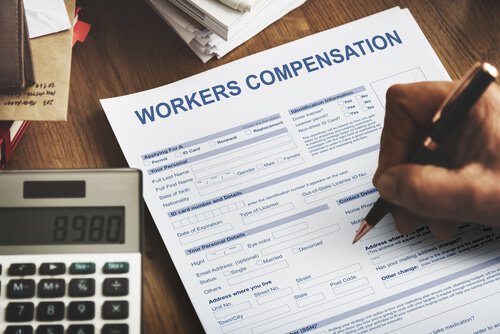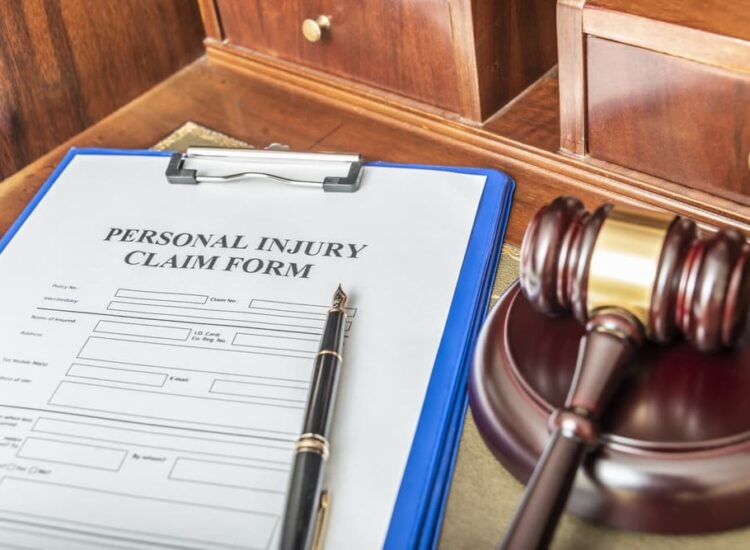Navigating the workers’ compensation system can feel overwhelming, especially when you’re already dealing with medical bills, lost wages, and the uncertainty of recovery. This article will guide you through the process of finding the best lawyer for workers compensation, covering essential topics to help you make informed decisions about your case and secure the benefits you deserve.
Toc
Understanding Workers Compensation

Workers’ compensation is a form of insurance that provides monetary and medical benefits to employees who have been injured or become ill as a result of their job. This includes coverage for medical expenses, lost wages, rehabilitation services, and in some cases, disability payments.
The primary goal of workers’ compensation laws is to protect both employees and employers. Employees are entitled to receive benefits without having to prove fault or negligence on the part of their employer, while employers are protected from lawsuits related to workplace injuries.
What is Workers’ Compensation?
Workers’ compensation is a state-regulated insurance program designed to provide benefits to employees who suffer work-related injuries or illnesses. This “no-fault” system ensures that injured workers receive necessary medical care and partial wage replacement while protecting employers from direct lawsuits. Understanding how this system operates is crucial for securing the compensation you deserve.
What Benefits are Available?
Workers’ compensation benefits can encompass a wide range of expenses, including:
- Medical Treatment: Coverage for necessary medical care related to your injury.
- Lost Wages: Compensation for the wages you miss while unable to work.
- Rehabilitation: Support for physical therapy and rehabilitation services.
- Permanent Disability: Benefits for long-term disabilities resulting from your injury.
It’s important to note that eligibility criteria and benefit amounts can vary significantly by state. Familiarizing yourself with your state’s specific laws can help you navigate the process more effectively.
Common Workplace Injuries
Workplace injuries can range from minor incidents to severe conditions. Some of the most common work-related injuries include:
- Overexertion: Injuries from lifting or carrying heavy items.
- Slip-and-Falls: Accidents that occur due to slippery or uneven surfaces.
- Contact with Equipment: Injuries from machinery or tools.
- Repetitive Stress: Conditions resulting from repetitive motions over time.
- Motor Vehicle Accidents: Injuries occurring while driving for work purposes.
Recognizing these common injuries can help you understand your rights and the benefits you may be entitled to.
Telehealth has become increasingly popular in recent years, offering convenient access to medical care. This trend has also impacted workers’ compensation, allowing injured workers to receive virtual consultations, physical therapy sessions, and even mental health support remotely. This can streamline the process and reduce the need for in-person visits, especially for workers who may have difficulty traveling or accessing healthcare facilities.
The workplace is also increasingly recognizing the importance of mental health. Workers’ compensation is evolving to cover conditions like stress, anxiety, and depression related to work-related events, such as workplace violence, bullying, or traumatic experiences. This expansion of coverage reflects the growing awareness of the impact of mental health on employee well-being and productivity.
When You Need a Best Lawyer for Workers Compensation

While it’s possible to file a workers’ compensation claim independently, there are several situations where hiring the “best lawyer for workers compensation” is highly advisable:
Denied or Disputed Claims
Navigating a denied or disputed workers’ compensation claim can be extremely challenging and stressful. If your claim has been denied, it is crucial to understand the specific reasons for the denial and the options available to appeal the decision. Common reasons for claim denials might include lack of sufficient medical evidence, claims of the injury being non-work-related, or missed deadlines in the claims process. A qualified workers’ compensation lawyer can help you gather the necessary documentation, represent you in hearings, and negotiate with insurance companies to strengthen your case.
Understanding the Appeals Process
If your workers’ compensation claim is denied, you have the right to appeal the decision. The appeals process varies by state, but typically involves filing a formal appeal with your state’s workers’ compensation board or a similar agency. During the appeal, you may need to attend hearings, present evidence, and possibly provide witness testimony. This can be a complex and time-consuming process. An experienced lawyer can help you navigate these steps, ensuring that all required documents are submitted correctly and on time, and advocate on your behalf during hearings.
Serious Injuries and Permanent Disabilities
For workers who suffer severe injuries or permanent disabilities, navigating the workers’ compensation system can be particularly complex. In these cases, the benefits provided under standard workers’ compensation may not be sufficient to cover ongoing medical care, rehabilitation, and lost earnings. A knowledgeable attorney can help you understand the full extent of your entitlements, including potential lump-sum settlements and long-term disability benefits. They can also ensure that your future medical needs are adequately anticipated and covered.
Employer Retaliation
Unfortunately, some employers may retaliate against workers who file compensation claims by reducing their hours, demoting them, or even terminating their employment. Such retaliatory actions are illegal, and if you experience them, it is essential to consult with a lawyer immediately. A skilled attorney can protect your rights, help you document any instances of retaliation, and take appropriate legal action to seek relief and damages if necessary.
Complex Cases Involving Third Parties
In some situations, your work-related injury may involve third parties, such as subcontractors or equipment manufacturers. These cases can add layers of complexity to your workers’ compensation claim. In such instances, you may have the option to file a third-party lawsuit in addition to your workers’ compensation claim. An experienced lawyer can navigate both the workers’ compensation process and any potential third-party claims, ensuring that you maximize your compensation and hold all responsible parties accountable.
Hiring the best lawyer for your workers’ compensation case can make a significant difference in the outcome of your claim. With their expertise, they can guide you through the complexities of the legal system, help you avoid common pitfalls, and ensure that you receive the full benefits you deserve. Whether you are dealing with a denial, serious injury, recurring issues, or complex circumstances, having a knowledgeable advocate by your side is invaluable.
Finding the Right Workers Compensation Lawyer for You

When searching for a workers’ compensation lawyer, it’s crucial to find the right fit for your specific case and needs. Here are some factors to consider when choosing the best lawyer for your workers’ compensation claim:
Key Qualities to Look for in a Lawyer
When searching for the “best lawyer for workers compensation”, consider the following essential qualities:
- Experience in Workers’ Compensation Law: Look for an attorney who specializes in this area and has a proven track record of success.
- Strong Communication Skills: Your lawyer should be able to explain complex legal concepts in a way that is easy to understand.
- Commitment to Client Advocacy: A good workers’ compensation lawyer will prioritize your rights and work diligently to secure the benefits you deserve.
- Availability and Responsiveness: Choose a lawyer who is accessible and responsive to your questions and concerns throughout the legal process.
It’s important to note that not all lawyers are equally skilled or experienced in workers’ compensation law. Some may prioritize case volume over client satisfaction, leading to potential delays or insufficient representation. It’s crucial to carefully vet potential lawyers and ensure they have a strong track record of success in handling workers’ compensation cases.
How to Find a Qualified Lawyer
Finding a qualified workers’ compensation lawyer can be achieved through several methods:
- Ask for Recommendations: Seek advice from trusted sources, such as your doctor, family, or friends who have been in similar situations.
- Search Online Legal Directories: Utilize online databases to find attorneys in your area who specialize in workers’ compensation.
- Contact Your State Bar Association: They can provide a list of lawyers with experience in handling workers’ compensation cases.
- Schedule Free Consultations: Meeting potential lawyers can help you evaluate their expertise and determine if they’re the right fit for your case.
Important Questions to Ask Potential Lawyers

When meeting with potential workers’ compensation lawyers, asking the right questions is crucial to determine their suitability for your case. Below are some important questions to consider:
Questions About Experience and Qualifications
- How many years have you been practicing workers’ compensation law?
- How many workers’ compensation cases have you handled, and what is your success rate?
- Do you have experience with cases similar to mine? If so, what were the outcomes?
- Are you a member of any professional organizations related to workers’ compensation law, such as the Workers’ Injury Law & Advocacy Group (WILG) or the National Association of Workers’ Compensation Judiciary (NAWCJ)?
Questions About Case Management
- Who will be handling my case? Will it be you, or will it be passed to another attorney or paralegal?
- How do you typically communicate with clients, and how often can I expect updates on my case?
- What is your approach to gathering evidence and documentation for my case?
- Do you have relationships with medical professionals or expert witnesses who can support my claim?
Questions About Fees and Costs
- What is your fee structure? Do you work on a contingency fee basis, and if so, what percentage of the settlement do you take?
- Are there any upfront costs or retainer fees I should be aware of?
- Will I be responsible for any out-of-pocket expenses, such as court fees or charges for obtaining medical records?
Questions About Strategy and Outcomes
- What strategies will you use to maximize my workers’ compensation benefits?
- How long do you anticipate my case will take to resolve?
- What potential challenges or obstacles do you foresee in my case, and how will you address them?
- Can you provide references or testimonials from previous clients?
By asking these questions, you can gain a clear understanding of each lawyer’s expertise, approach, and suitability for your specific needs. This will help you make an informed decision and increase your chances of a favorable outcome in your workers’ compensation claim.
The Role of Your Workers Compensation Lawyer

The role of your workers’ compensation lawyer is multifaceted, involving various aspects of the legal process to ensure you receive the benefits and support you deserve. Here are some key responsibilities your lawyer will undertake:
Legal Guidance and Representation
A skilled workers’ compensation lawyer will provide you with legal guidance tailored to your specific circumstances. They will help you understand your rights under workers’ compensation laws and represent you in interactions with insurance companies, employers, and any relevant legal proceedings. This includes preparing and filing all necessary paperwork, ensuring compliance with deadlines, and advocating on your behalf at hearings or appeals.
Investigation and Evidence Gathering
To build a strong case, your lawyer will conduct a thorough investigation into the circumstances of your injury or illness. This includes gathering evidence such as medical records, accident reports, witness statements, and any other relevant documentation. Your lawyer may also work with medical professionals and expert witnesses to substantiate your claim and demonstrate the extent of your injuries and their impact on your ability to work.
Negotiation with Insurance Companies
Dealing with insurance companies can be challenging, as they often seek to minimize the amount they pay in claims. Your lawyer will negotiate with the insurance company on your behalf to secure a fair settlement. They will use their knowledge of workers’ compensation laws and the specifics of your case to advocate for the maximum benefits possible, whether it be for medical expenses, lost wages, or permanent disability.
Addressing Disputes and Appeals
If your workers’ compensation claim is denied or if disputes arise regarding the benefits you are entitled to, your lawyer will be instrumental in addressing these issues. They will help you understand the reasons for denial and work to resolve any disputes through negotiation or mediation. If necessary, your lawyer will guide you through the appeals process, preparing you for hearings and presenting a compelling argument to support your case.
Providing Peace of Mind
Navigating a workers’ compensation claim can be stressful and overwhelming, especially when dealing with the aftermath of an injury or illness. By hiring a knowledgeable lawyer, you can focus on your recovery while your lawyer handles the legal complexities of your case. This peace of mind is invaluable, as it allows you to prioritize your health and well-being during a challenging time.
Ultimately, the role of your workers’ compensation lawyer is to be your advocate and ally throughout the entire process, ensuring that you receive fair treatment and the full benefits you are entitled to under the law.
Frequently Asked Questions

Q: How much does it cost to hire a workers’ compensation lawyer?
A: Most workers’ compensation lawyers operate on a contingency fee basis, meaning they only get paid if they win your case. Their fees are typically a percentage of the settlement or judgment.
Q: How long does the workers’ compensation process take?
A: The workers’ compensation process can be lengthy, often taking months or even years to resolve, depending on the case’s complexity.
Q: Can I choose my own doctor for my work-related injury?
A: In some states, you have the right to select your own doctor after the initial treatment period, but you may need to obtain approval from the insurance company.
Q: What if my employer doesn’t have workers’ compensation insurance?
A: If your employer lacks workers’ compensation insurance, you may have the right to file a personal injury lawsuit against them.
Conclusion
Navigating the complexities of a workers’ compensation claim can be challenging, but with the right knowledge and support, you can successfully manage the process and secure the benefits you deserve. Always remember that you have rights as an employee, and it’s crucial to advocate for yourself and seek professional assistance when needed.
Additional Resources:
To further aid in your understanding and management of a workers’ compensation claim, consider exploring these additional resources:
- State Workers’ Compensation Board – Each state has a board or commission dedicated to workers’ compensation. Their websites often provide valuable information regarding the claims process, rights, and benefits in your specific state.
- Legal Aid Societies – Non-profit organizations that offer free or low-cost legal assistance to those who cannot afford to hire a private attorney. They can provide guidance and representation in your workers’ compensation case.
- Workers’ Rights Organizations – Organizations focused on labor rights and workplace safety can be invaluable in providing information, resources, and support regarding workers’ compensation issues.
By utilizing these resources and maintaining open communication with your lawyer, you can navigate your workers’ compensation claim more effectively and with greater confidence. Remember that while the process can be complex, you do not have to face it alone. With the right support and resources, you can work towards a resolution that secures the benefits and justice you deserve.







